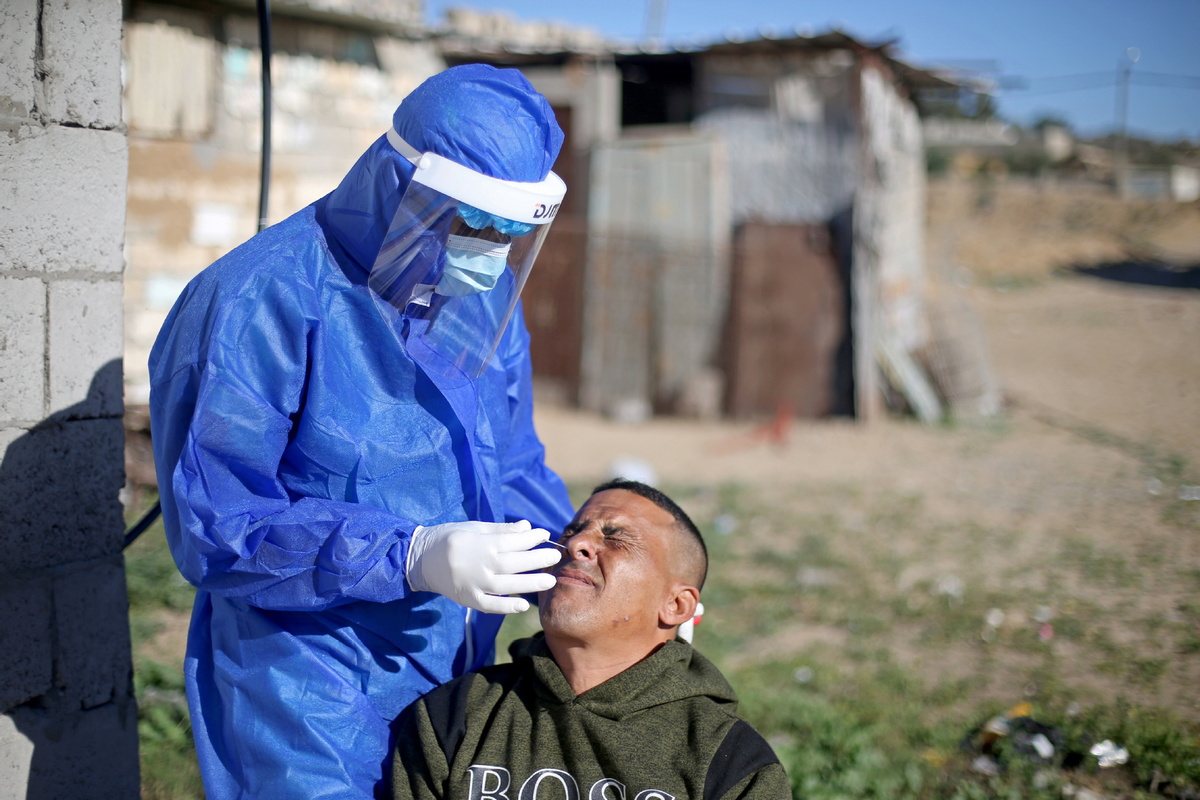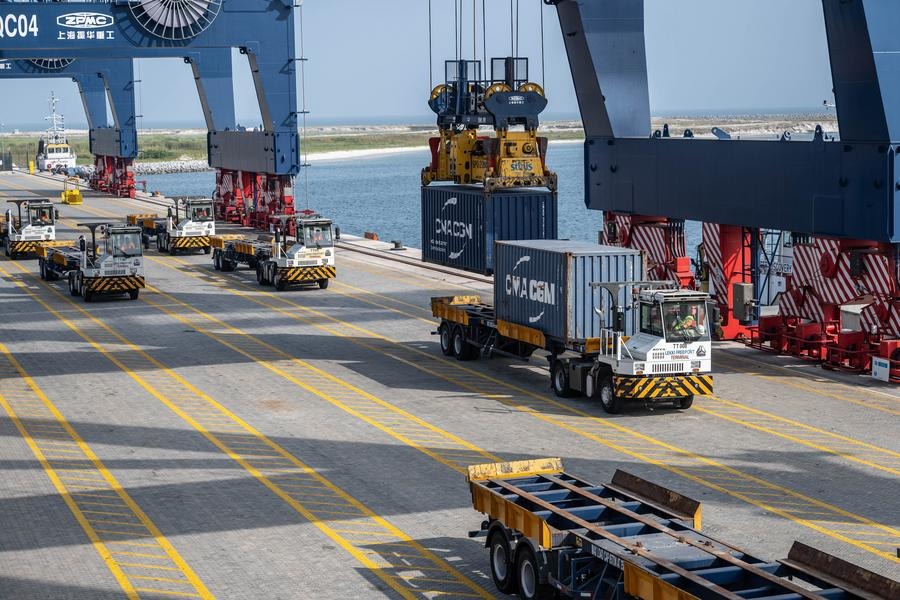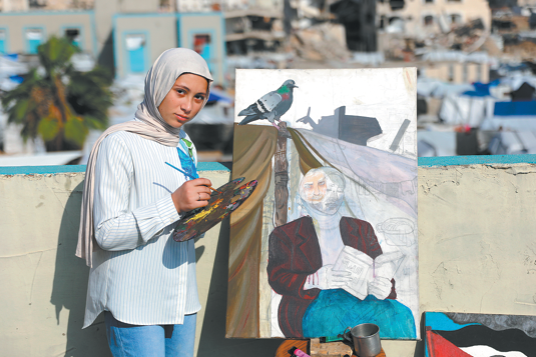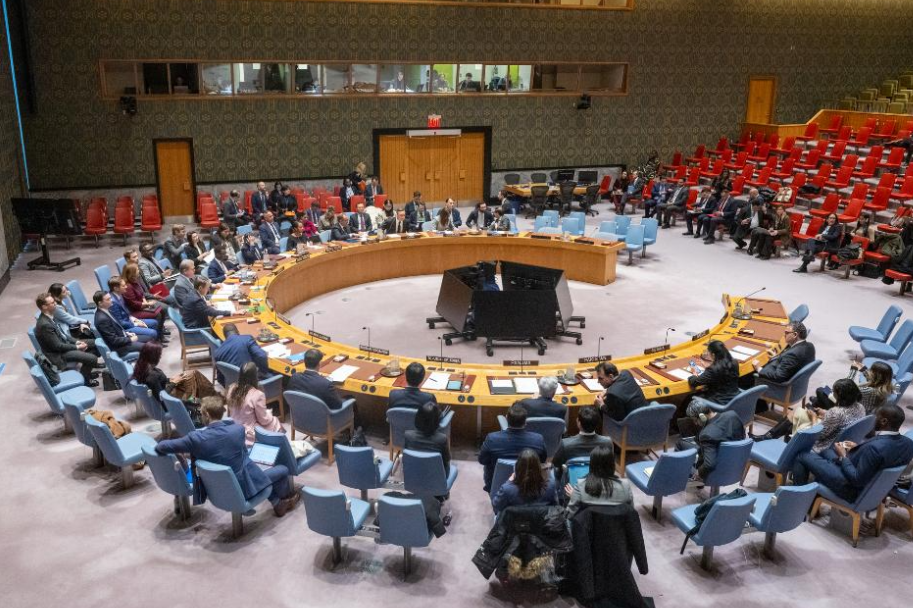Mobile clinics home in on need to ease hospital strain

Editor's Note: This news column showcases stories from around the world that bring a touch of positivity to the fight against the deadly coronavirus.

GAZA, Middle East-Seven mobile clinics have been established in the Gaza Strip to treat coronavirus cases and ease the burden on the Health Ministry's care facilities.
Hussam al-Safady, a project coordinator at the nongovernment Caritas Foundation that set up the clinics, said each of them has a doctor, a nurse and a driver. They visit patients' homes to follow up on health conditions and provide them with medicine and other supplies.
The Caritas Foundation, an international medical institution formed to help marginalized patients in critical situations, moved to establish the mobile clinics in the coastal enclave to provide Palestinians with the medical assistance they needed following the report of the first two cases of the coronavirus there in March 2020, Safady said.
"At that time, we helped tens of thousands of patients to get their medicines and helped them avoid being infected with the novel coronavirus," he said.
Despite their good intentions, the virus did not stop spreading. At the end of August, the Hamas-run Interior Ministry imposed preventive and precautionary measures meant to curb the spread of the virus.
But the situation got worse, especially with a lack of medical equipment in the Gaza Strip, said Safady.
"This is the reason why we suggested helping the Health Ministry by following up on the patients as well as those who required home quarantine," he said.
The Caritas workers have dealt with about 20,000 people, including those infected and their contacts.
Raed Kuhail, a 36-year-old father of three in Gaza, joined the mobile clinics four months ago when he saw the deterioration in the health situation.
He said he and his colleagues in other mobile clinics would visit as many as 70 people in all districts of the Gaza Strip.
Hedaya Mohammed, a nurse in her 30s, said that she was happy to take her place in a mobile clinic to help other people.
The enclave has had to get by with limited health services, especially after it was put under a tight Israeli blockade in 2007, when Hamas took control of the strip, she said.
Xinhua

































